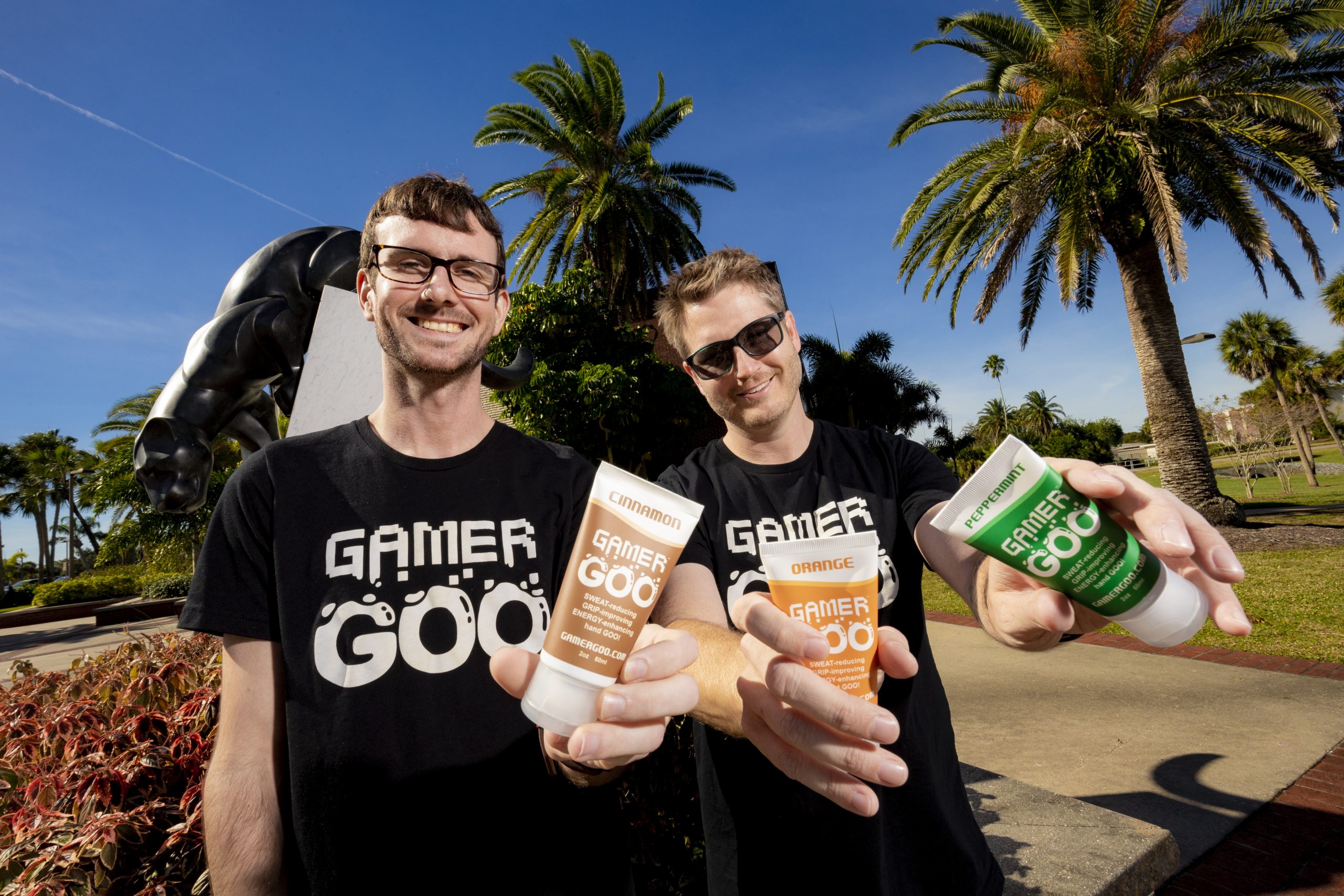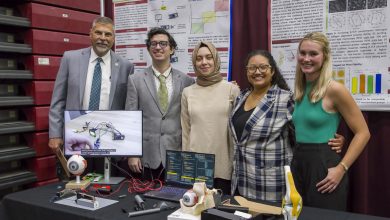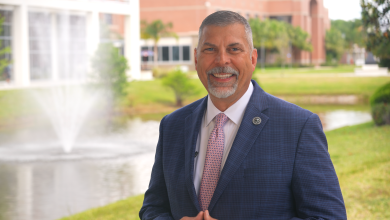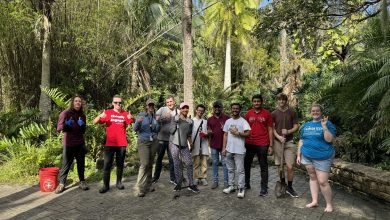Panther Pioneers: What It Takes To Be A Founder
By Jessica Taylor
We’ve all had it at some point: that million-dollar idea, the fantasy of walking out on a job we hate or the hobby we wish we could turn into a career. Some of us shove these crazy dreams behind a wall of excuses or rational thinking. After all, so many things could go wrong. So many new businesses fail. Who in their right mind would give up a secure job or carefully planned future for—gasp!—the unknown?
But people are taking that leap more and more. As of 2018, there were 30.2 million small businesses in the United States, according to the U.S. Small Business Administration. That number continues to grow. Whether through a business with employees, a sole proprietorship or as a freelancer, more Americans see the value of going rogue.
So what sets an entrepreneur apart? What kind of person does it take to go it alone and found a company? We talked to a few Florida Tech graduates who went on to become successful founders. Interestingly, Florida Tech has a long list of alumni who also happen to be successful business owners. Coincidence? We don’t think so. At Florida Tech, the spirit of independence and innovation is strong, and it shows in our graduates. After all, the school itself was founded 60 years ago on just 37 cents.
Embrace Uncertainty
Scott Benjamin, assistant professor at the Bisk College of Business, sees firsthand the characteristics that set a successful future founder apart.
“A lot of students have great ideas, but very few of them can do things with uncertainty, where you don’t know the next step,” Benjamin said. “When you have a job, you know what you have to do every day. With entrepreneurship, there are no set guidelines.”
Benjamin accepts the unknown on a daily basis in a variety of businesses outside his full-time teaching career. One of those ventures is Gamer Goo, a company he co-founded with former student Justin Clark ’16.

Clark graduated with a degree in business administration and launched Gamer Goo in February 2018. Gamer Goo is a product designed to improve handgrip. Though it’s targeted toward gamers, it’s also helpful to anyone who needs a better grip in sports and other activities.
Gamer Goo isn’t Clark’s first business. He grew up with family-owned restaurants and even put himself through school with the sale of his direct-mail business. He and Benjamin hit it off in class, and that relationship grew into business partnership.
Clark agrees that it takes a certain mindset from the start to make a business successful.
“You can’t be afraid to fail,” Clark said. “You can’t let the fear of not being good enough stop you from starting. Take those leaps, and figure the risks out as you go.”
That formula has worked well for the partners so far. Since Gamer Goo’s launch, they have continually hit their business goals, and they plan to reach $1 million in sales within the next 12 months. They intend to continue to build the company and sell it in three years to start their next venture.
Be Realistic
Don’t let the idea of embracing uncertainty lead you to believe a person can blindly leap into a new business without being realistic. Many of these founders run their businesses full time, but it didn’t start that way. Some were students. Others had full-time jobs and still do. Successful business owners go into their ventures knowing that it will consume their lives, while understanding that any financial reward may be in the very distant future.
“Have realistic timelines. Businesses take 18 to 24 months before they draw any salary,” Benjamin said. “Too many people bail.”
If you’re like Clark, you don’t have another job to fall back on. So, he faces a sink-or-swim situation with every new company. Having a clear idea of expenses is key.
“You have to have the mental ability to know and be willing to put yourself through the financial and mental struggle to balance everything out,” Clark said. “Understand costs down to a cent. You can be surprised that your estimates for what you thought you would need don’t go as far as you expected.”
Build Relationships
Though it’s a given that you’ll face uncertainty, that doesn’t mean you have to do it alone. Aerospace engineering alumnus Justin Oliveira ’06, ’07 M.S., lists a good partner as the key to success.
“The best thing you can do the moment you decide you want to start a company is to find someone equally as passionate, and have them be your co-founder,” Oliveira said, “because it’s impossible to do it alone. Determine what your strengths and weaknesses are, and find a partner who can fill in those gaps.”
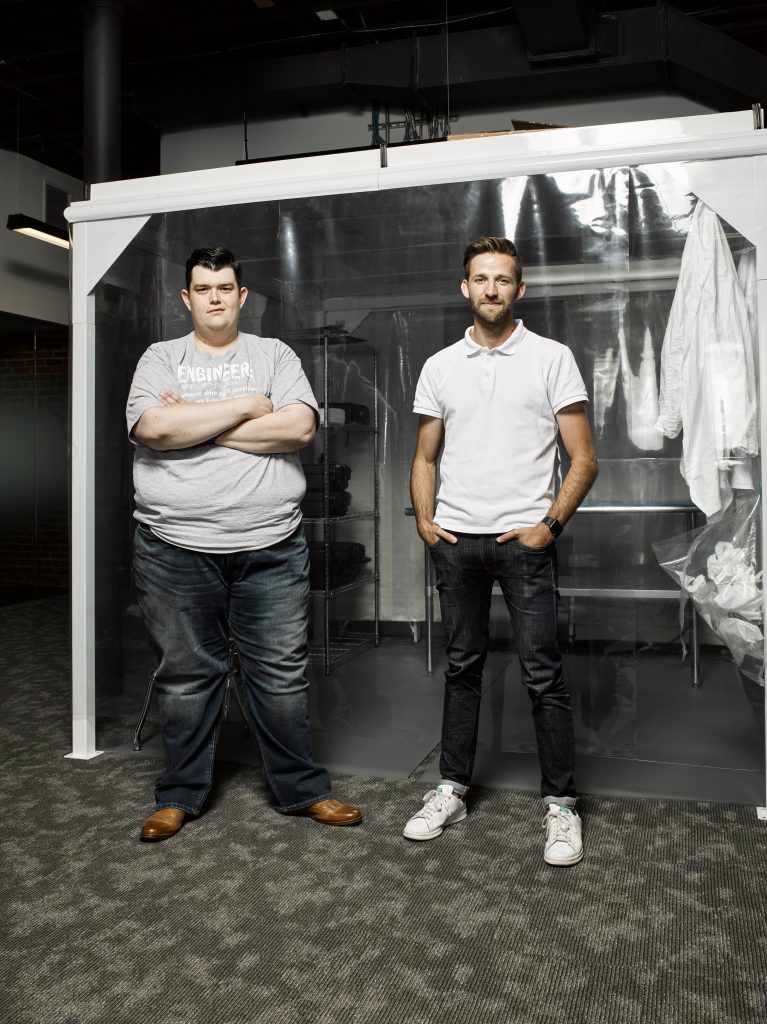
Oliveira met his business partner while earning his MBA at Harvard University. They found they had a shared love for space. Oliveira’s experience working for NASA on the technical side fit well with his partner’s experience with commercial business. Together, they founded Analytical Space, a telecommunications infrastructure for lower Earth orbit. In just a year and nine months, they launched their first satellite and have the second launch planned for the coming months.
Clark credits Florida Tech for giving him the ability to find a good partner in Benjamin. Because professors and students work together in small classes, they have the opportunity to really get to know each other.
“You have to surround yourself with people who know more than you,” Clark said. “The connection you can make with your professors, relationship wise, can pay off.”
It’s not just co-founders who are important to a successful company. Employees, investors and customers are the glue that ties the whole thing together. The best way to attract a good team is to effectively communicate your goals.
“You have to have a dream and a vision, and you have to have the ability to articulate that to people,” Oliveira said. “You’re going to be selling to investors and customers. You have to sell them on the dream, too, because if they’re not excited about what you’re doing and the thing you’re focused on, they’re not going to give you money or sign contracts. You don’t have to be perfect. You don’t have to be a TED Talk storyteller, but you have to be able to say, ‘This is what I’m passionate about. This is what I’m focused on. And this is why you should care.’”
Take Initiative
Once you have surrounded yourself with people who share this common vision, it doesn’t mean you can kick back and reap the rewards. There is a lot of learning and elbow grease that goes into running a company.
Damion Bailey ’12, founder of Endeavor Group International, knows this firsthand. It took several years to build his educational staffing company based in China. In addition to mastering the language and learning the customs, he splits his time between the U.S. and China, serves in the Army Reserves and manages a full staff.

“You have to have a drive to commit to something and do it,” Bailey, a military science and Army ROTC program graduate, said. “You can’t say, ‘I would like to start my business, but’ and have an excuse why you haven’t yet. So, I think the difference between those who are successful and those who aren’t is they actually have that drive and the mindset that they’re going to try.”
That initiative continues as you face new challenges, learning as you go.
“Are you the type of person who can be self-taught? Can you go off and learn the stuff you need to learn?” Oliveira said.
justin Oliveira
“You need to be someone who’s fascinated by learning new things and self-aware enough to realize when you don’t know something, and go find the information. Those are the people who will succeed.”
Maintain the Passion
Beyond taking initiative, facing uncertainty and surrounding yourself with people who can help, the foundation of it all is passion. All of these founders started their companies because they loved what they were doing.
Bailey discovered his passion when he spent a month in China through a cross-cultural program at Florida Tech. Oliveira developed his passion for space when studying engineering and working for NASA. Clark found a common passion for business with his professor. The challenge comes in keeping that passion alive through the work, uncertainty and financial unknowns.
“It’s terrifying. It can be stressful, and that’s why a lot of people don’t do it. You can’t let that fear of something going wrong stop you,” Bailey said.
Florida Tech founder Jerome P. Keuper surely didn’t let anything stop him, and he only had 37 cents.
This article was the feature story in the 2019 Winter Edition of the Florida Tech Magazine. Click below to read the full edition.

